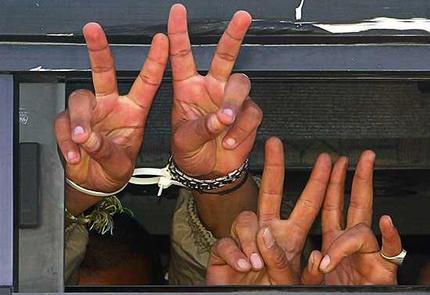Midnight Massacre Pending, Let's Whip our Senators
The good news on the Senate financial reform bill these days is that we have a few provisions worth fighting for. Senator Blanche Lincoln (D-Ark.) has introduced one of the most important - a bold section in the Dodd bank reform bill (Section 716, colloquially known as 106) that will force the biggest banks to spin off their swaps (or derivatives) desks into a separate entity. That entity will be regulated and can remain part of the bank holding company, but it no longer has access to the Federal Reserve's flow of funds, FDIC insurance and the taxpayer guarantee. Supporters include legendary economists and public policy experts such as Robert Reich, Joseph Stiglitz, Nouriel Roubini, and Michael Greenberger.

 Today a right-left coalition scored a victory for the American people when Senators voted 96-0 to audit the
Today a right-left coalition scored a victory for the American people when Senators voted 96-0 to audit the 
 The financial services reform bill is on the Senate floor this week. The recently announced criminal investigation of
The financial services reform bill is on the Senate floor this week. The recently announced criminal investigation of  President Obama's chief economic adviser,
President Obama's chief economic adviser,